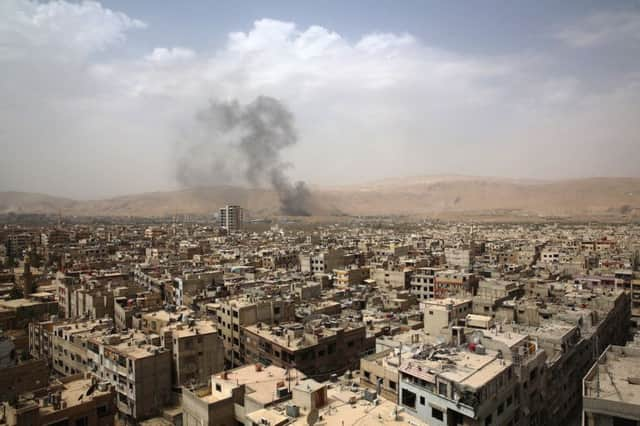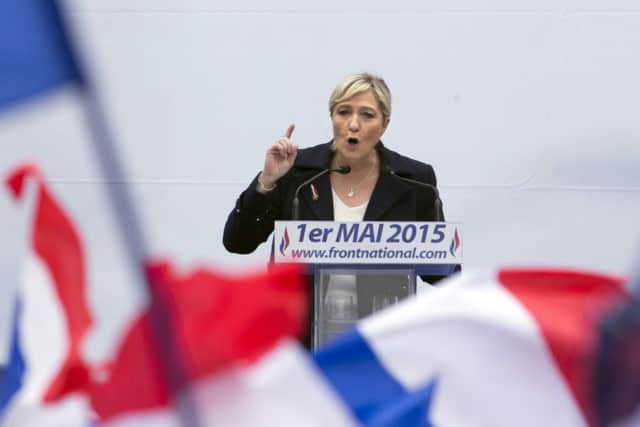Allan Massie: Imperfect EU is best hope for future


THIS is a testing time for the European Union, arguably the most difficult since it came into being. This is not because of the troubles of the euro. The common currency has been in difficulties since the global financial crash seven years ago, but has survived it, admittedly at a cost.
Austerity has damaged the economies of Italy, Spain, Portugal, Ireland and Greece, but not even Greece has opted or been compelled to leave the eurozone. Right-wing commentators here who were certain that the euro was a mistake and that the eurozone must crash may not yet have had to eat their words, but they certainly haven’t been proved right. Hostility to the euro certainly exists in, for example, France, the state that pushed hardest for the creation of the single currency. Marine Le Pen’s Front National calls for a return to the franc, and is also making much stronger demands than David Cameron for the “repatriation” of powers from Brussels, but even in these topsy-turvy times it is unlikely that Madame Le Pen will be the next French president; and so it is probable that the eurozone will hold together
Advertisement
Hide AdAdvertisement
Hide AdNo, it is of course the migration crisis which is testing the politicians and institutions of the Union. Whatever responsibility the West has for the horrors and chaos in the Middle East which have led to this mass exodus of refugees – and we undoubtedly have some – they can hardly be blamed on the EU. Yet, to simplify what is very complicated, it is the member states of the EU which are having to respond to this migration, not the USA.


The free movement of capital and labour – that is, the free movement of people – is one of the essential founding principles of the EU. Ernest Bevin, the great foreign secretary in the 1945 Labour government, once spoke of his wish to see the day when he could go to Victoria station or Waterloo and buy a ticket to anywhere in Europe with no need for a passport or border controls. The idealists who created the European Economic Community which developed into the European Union realised that the unfettered movement of people was as essential as the breaking-down of trade barriers. Eventually came the Schengen Agreement which went a long way to making the Europe of open borders that Bevin had hoped to see a reality. The UK, of course, declined to sign up for Schengen. Nevertheless most of us have benefited from it, travelling throughout the EU without let or hindrance.
Now this basic principle is under threat. It may not be abandoned, but it is being suspended. Another principle that refugees should be accommodated in the country they first arrived in has already been discarded. Everyone recognises that Greece and Italy, the first points of arrival for most, can’t be expected to take responsibility for the flood of migrants. Even Germany, which has shown a greater willingness than any other state to accept large numbers of refugees, has – temporarily at least – felt obliged to re-impose border controls to enable it to stem the flow and process those seeking admittance.
It is a humanitarian problem and a political one. The EU Commission’s attempt to get all member states to agree to accept a quota of migrants/refugees is reasonable, but, for two reasons, probably unworkable. First there are countries – the most recent member states, formerly part of the Soviet bloc, and the Mediterranean states suffering high austerity-imposed levels of unemployment – which are unable to accommodate large number of incomers; second, even if such states do make the attempt, it is highly unlikely that migrants will be content to remain in, say, Latvia, Hungary or Romania. They will want to move on to Germany, the UK, France, the Netherlands, Denmark or Sweden; and they will legally be free to do so.
David Cameron’s argument that the solution must be found not in Europe but in the Middle East itself has some merit. It would obviously be better if, for instance, Syrians felt able to return to Syria as doubtless vast numbers of them would wish to do. But there is no sign of an end to the war there, and the chance of any sizeable number of refugees returning there is, to put it mildly, remote. So the onus of accommodating the migrants is thrown back on the EU and the individual member states.
There is no evident solution. Douglas Carswell, the Ukip (and former Tory) MP writes that Schengen was a late 20th century solution to a 21st century problem, and that open borders are unsustainable. The EU can’t continue as it was. He is (probably) quite happy about this. The problem is of course that closing the borders will not address the reality of the migration crisis. Nor is it a solution merely to try to clamp down on the “people traffickers”. Some of them are doubtless utterly unscrupulous and greedy. On the other hand there is a demand for their services from people who are living in wretched conditions and seeking a better life; they are meeting that demand.
That the migration crisis is imposing a strain on the EU is obvious, undeniable. It may make a temporary suspension of the principle of free movement necessary. But flip the coin and look at the obverse. Suppose the EU didn’t exist. Suppose there was no Commission and no Council of Ministers seeking to formulate a concerted response. Would things be better or worse? The migrants would not disappear. They would still be there. They would still be trying to make new homes for themselves in Europe. And, in doing so, they would be setting one European state against another. So things would surely be worse. The EU is imperfect, as any human institution is. But at least it offers a prospect of co-ordinated action, a common response to a pressing international problem. The migration crisis, far from making the EU redundant, makes it all the more necessary.